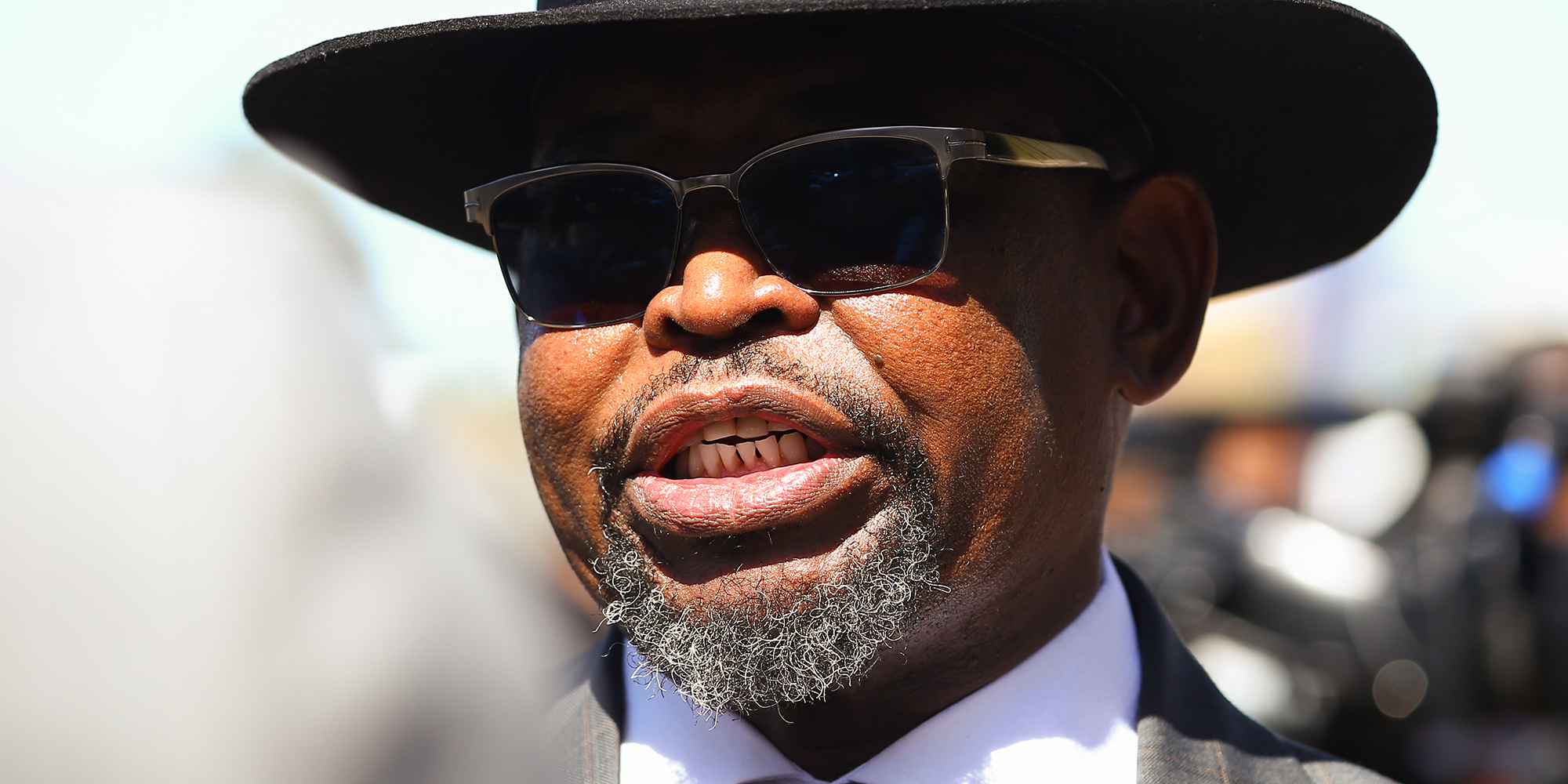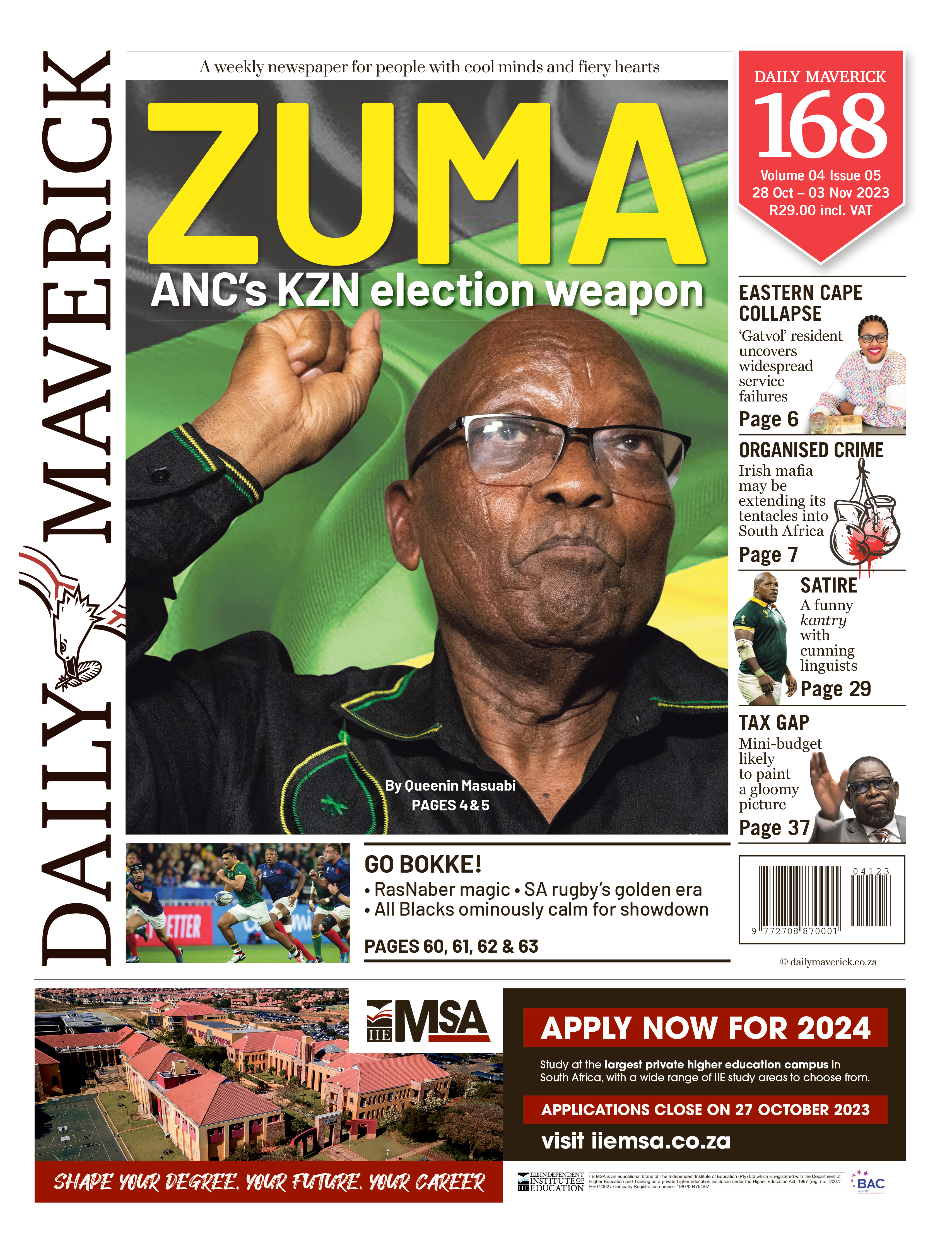When Finance Minister Enoch Godongwana delivered his Budget Speech in February, the rand and domestic bonds initially rallied after market jitters over South Africa’s debt trajectory spinning out of control were briefly allayed.
Don’t bet on a similar rally when Godongwana unveils the Medium-Term Budget Policy Statement (MTBPS) – an outline of fiscal plans and forecasts for the next three years – on Wednesday, 1 November.
Hope of “fiscal consolidation” has evaporated, with revenue flows reduced to trickles as the commodity windfall withers and the wider economy barely grows in the face of the unfolding calamity of state failure.
Fiscal consolidation is no longer on the cards. Government expenditure has exceeded revenue by about R200-billion this year, raising jitters that Treasury will have to borrow more to avoid a debt blowout.
Shortfall expected
It’s instructive to look at last year’s MTBPS and February’s Budget 2022/23 to see just how far things have gone off the tracks.
In the 2022 MTBPS, gross debt was seen stabilising at 71.4% of GDP in 2022/23. The budget deficit was seen narrowing from 4.9% of GDP in 2022/23 to 3.2% in 2025/26. In 2023/24, a primary budget surplus of 0.7% of GDP was expected, which would be the first in 15 years.
“Market jitters about South Africa’s fiscal position will continue to show, with the country no longer expected to realise a primary budget surplus this year – a requisite to stabilise government debt,” Oxford Economics Africa said in a note on the coming MTBPS.
“We forecast South Africa will record a primary budget shortfall equal to 0.3% of GDP for the 2023/24 financial period, with government debt as a proportion of GDP expected to breach the 80% echelon in the coming years.”
PwC South Africa’s chief economist, Lullu Krugel, says although Budget 2023 expected the South African economy to grow 0.9% this year and 1.5% in 2024, the company is forecasting lower growth rates of 0.5% and 1.1%, respectively.
“This is indicative of the multiple headwinds faced by the local economy, including a weak outlook for household finances – linked to a decline in real income – impacting household spending, low business confidence weighing on investment, a decline in global commodity prices reducing export receipts, and a weak rand increasing the cost of imports.”
Earlier, revenue collection had exceeded expectations, in part because of an explosive commodity boom that sent prices – and the profits of South African mining companies – through the roof.
But commodity prices have cooled while the intensity of rolling blackouts and Transnet’s worsening woes – the hallmarks of state failure – have slashed revenue.
Sanisha Packirisamy, economist at Momentum Investments, points out that gross tax revenues are running behind schedule, largely owing to an underperformance in corporate income tax collection.
The slump in the mining sector means that contributions from this sector have fallen off, and Packirisamy says a slump in South Africa’s key exported commodity prices could drive this even lower.
The country’s tax gap (the difference between taxes legally owed and taxes collected) is estimated to be more than R300-billion. Reducing this by 10% would fund the tax shortfall of R30-billion forecast for 2023/24.
The South African Revenue Service (SARS) has made progress in this regard: deputy commissioner Johnstone Makhubu has noted that compliance efforts contributed R82-billion to revenues in the first five months of the year, up 22% year on year.
However, Packirisamy warns that current economic hardship argues against raising revenues through higher taxes. Instead, addressing non-payment by wealthier individuals, collecting revenue lost through base erosion, profit-shifting and recouping tax gains from illicit trade can possibly contribute to plugging the gap until a longer-term solution is found, she says.
Potential grant announcements unlikely
Packirisamy says the budget remains highly redistributive in nature, with the social wage (spending on free housing, services and social grants) nearing 60% of non-interest spending.
“As such, the debate remains how to offset any permanent increases in social grant funding with a combination of tax increases and credible cuts in other budget areas.”
Momentum Investments believes any announcement on the potential extension of the Social Relief of Distress grant could be delayed to the February 2024 budget.
BNP Paribas estimates that this grant of R350 a month, paid to about eight million recipients, comes at a cost of R36-billion.
It further notes that the government’s expected downward shift in the total number of social grant recipients in the 2024/25 financial year looks unrealistic, given the sociopolitical difficulties associated with rescinding grants from a number of individuals who earn less than R624 per month, particularly when the food poverty line, as calibrated by Statistics SA, stands closer to R760.
Spending cuts
In an economic outlook note, PwC says the MTBPS 2023 needs to update fiscal revenue, expenditure and debt forecasts, and specifically comment on how the 2023/24 funding gap will be addressed.
Godongwana has indicated that spending cuts and increased borrowing (not higher taxes) can be expected. PwC also expects that he will place greater responsibility on SARS to improve compliance levels to bolster fiscal income over the medium term.
Izak Odendaal, investment strategist at Old Mutual Wealth, says the MTBPS is unlikely to hold any fireworks, and Treasury is likely to continue to tread carefully in balancing the need for longer-term fiscal sustainability with the need to maintain an adequate level of spending to support public services.
“Given next year’s election, any changes are likely to be phased in over time...
“The government will simply have to be more efficient, doing more with less. The finance minister has already mentioned that spending cuts are likely to be smaller than the amount the government underspends anyway,” he says. DM
This story first appeared in our weekly Daily Maverick 168 newspaper, which is available countrywide for R29.





